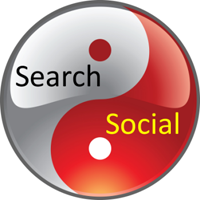Search Engine Optimization: A Layman’s Perspective
by Orion
What is SEO?

What search engines do is attempt to discover the most relevant results for the phrase or word entered in the search box. It’s simple, but how they accomplish it is not. Google uses an algorithm (a computer program that look for clues to give you back exactly what you want) that rely on more than 200 unique signals or “clues” that make it possible to guess what you might really be looking for.
SEO has 2 parts, on-site and off-site. On- site optimization should be performed prior to launching the site, and involves alerting the search engine directly through markup (code, titles and descriptions) what the site is about. Of course, we should be starting with some high- quality original content relevant to the topic. Then we implement basic on-site SEO. Some examples:
- Keyword density/prominence analysis and optimization of your website text
- Proper nesting of heading tags in the html, such as <h1>,<h2>,<h3> providing a sound information architecture
- Use of bold text for chosen web page keywords
- Web page title and description meta-tags analysis and optimization
- Image and link meta-tag optimization
Off-site SEO is the Big Game. Here we are looking at developing social media channels, using ads and social media posts to drive traffic to our website. Traffic raises our site ranking. Here we need to build out our social media accounts with content, follow other relevant members of the social community, and make other efforts to build a following. A mailing list comes in handy here, we can use it to market your business with free tools like mailchimp. If other reputable website owners add a link back to your site, this counts as a vote in your favor to search engines.
Ads are a integral part of any SEO campaign- even with a small budget we can leverage Facebook, for example, to target a very specific demographic. We can track the results of our campaign with an application like Google Analytics, which measures site traffic, where it was acquired from, among other data.
It’s good to know that SEO is considered a strategy. Nothing in the world of SEO is clear-cut in terms of action A yields result B. The ever- shifting sands of the google algorithm require a strategy that is equally flexible. The best practice is to set your ad budget, implement your regular posts on social media, send out an e-newsletter at regular intervals, and then evaluate and re-formulate your strategy based on the results.
Read more about SEO or search engine optimization techniques at Holistic Web Design.
Recommended Posts

Local Search Optimization: The How and Why
May 6, 2011

The Future of Holistic Web Design: Trends and Tips for 2025
November 24, 2024


